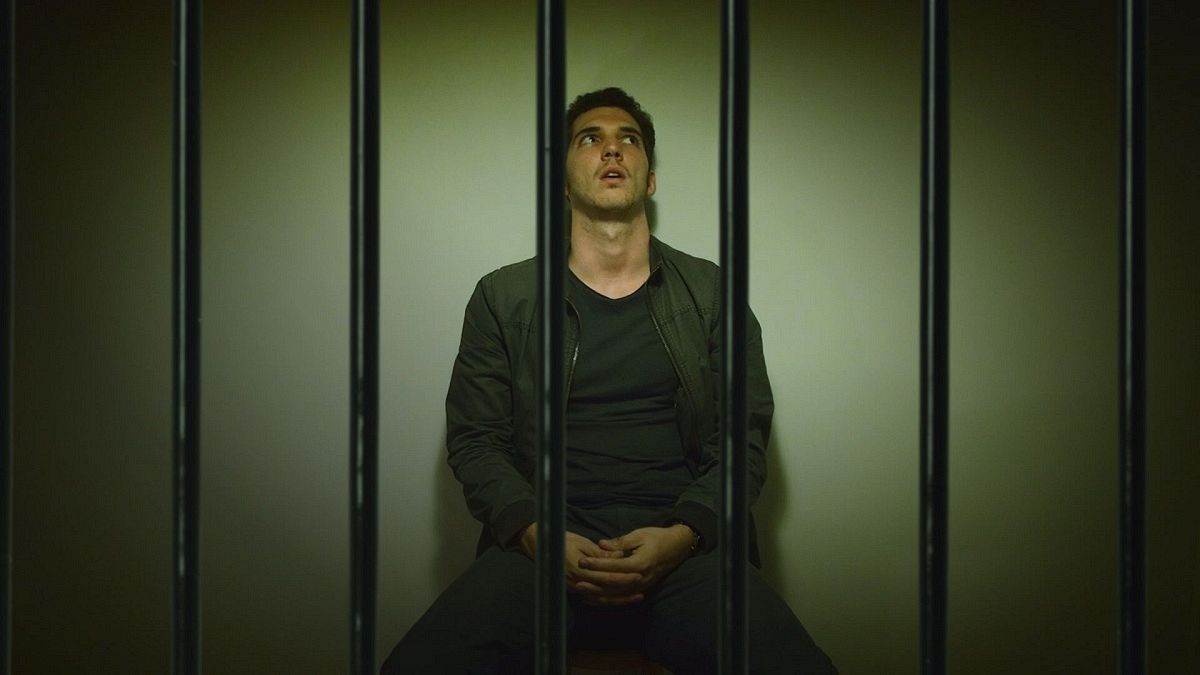If someone is taken into police custody, what rights do they have in those crucial early stages of the arrest? Can they make a phone call, for example, or have immediate access to a lawyer? At the moment it depends on the country.
After years of concern over claims of injustice, new minimum European standards are expected to be formally adopted by the end of the year. It seems the days of some suspects being held for long periods with no outside contact are numbered.
France is one country where reforms have already taken place. After being condemned by the European Court of Human Rights and by the nation’s highest court, Paris changed its laws in 2011. Before that a suspect did not have the right to remain silent, to have a lawyer present during questioning, or to inform others about the arrest.
Right On spoke to a woman detained in 2004 over accusations of business fraud that she denied. First held for three days without legal advice, she is convinced that she would not have later spent a year in prison had the law been different.
“When arrested my human rights were not respected,” the 60-year-old told Euronews. “It was totally degrading. If I’d had a good lawyer my case would’ve been completely different, I would not have been convicted; he would’ve been able to see there was no evidence to keep me in custody.
“As you can’t communicate with the outside, you have to have a very strong character. I knew it was painful for me, something very difficult, but it was even harder for my children, not knowing how long it would last. I only had one wish: to be able to get in touch with my lawyer, but that was refused.”
The woman says it was unbearable to be alone with no advice, and no one to check on her condition. She became ill after straight away being placed in a cell.
“In general there is vomit, urine and excrement in the cells, and it’s on the blankets too,” she said. “They treat you in a very primitive way. But that is on purpose, to break you down, which is what happens. You are generally left feeling shattered.”
The organisation that represents lawyers in France was involved in the push for changing the law. In the past a lawyer was allowed to have one half-hour meeting with a suspect – often just to check on their well-being – but they complained it was vital to be present during interrogations.
Philippe Chaudon at the French National Bar Council told Euronews: “There’s a problem understanding the police officer’s questions. There’s a problem with pressure being applied. We know of people who’ve admitted to things they didn’t do because of being pressured.
“You can have problems communicating with the outside,” he continued. “You’re really cut off. It’s changed since the reform, but you didn’t have your glasses, no telephone, and didn’t know where your children or partner were. You didn’t know what was happening outside, and that could last up to 48 hours or even 96, depending on the case.”
At the moment the rules on police custody differ widely from one European country to another. But after a breakthrough in negotiations between the European Parliament and the Council of Ministers earlier this year, procedures look set to be harmonised over the next three years.
The reform would also aim to guarantee the confidentiality of meetings and contact between lawyers and the accused.
But Euronews’ Seamus Kearney reported: “Of course the reform doesn’t just concern suspects and lawyers; there’s also the point of view of law enforcement officers. Any change in the procedures has a big impact on their daily work.”
Right On spoke to one police union that was opposed to the recent reforms. It says more thought is needed into exactly how the new rules work on the ground.
Stéphanie La Rosa at the Alliance police union said:
“Police officers today are the first link in the chain, the ones who apply these European reforms. It’s absolutely crucial to take into account their needs, to protect them, to envisage everything that’s important to them, what they need every day.
“For them the police custody reform was really like an assault. They suffered due to the lack of preparation, not being trained, not having the resources.”
For campaigners though, yet more reform is still needed. They say the progress on access to a lawyer is a big step, but other changes are desperately needed.
Jacques Montacié at the French Human Rights League told Euronews: “One priority is the possibility of having access to the police files. This is because the lawyer, who is there to advise his client, inform them of their rights and also defend their interests, doesn’t know the exact details of the accusations. He knows what the thrust of the case is but doesn’t know who is making the accusation, what the motive is and on what basis.”
Other questions are still being debated, including whether suspects in serious cases such as terrorism should be treated differently. Another point is making sure that all suspects get to see a lawyer, even if they cannot afford to pay.
